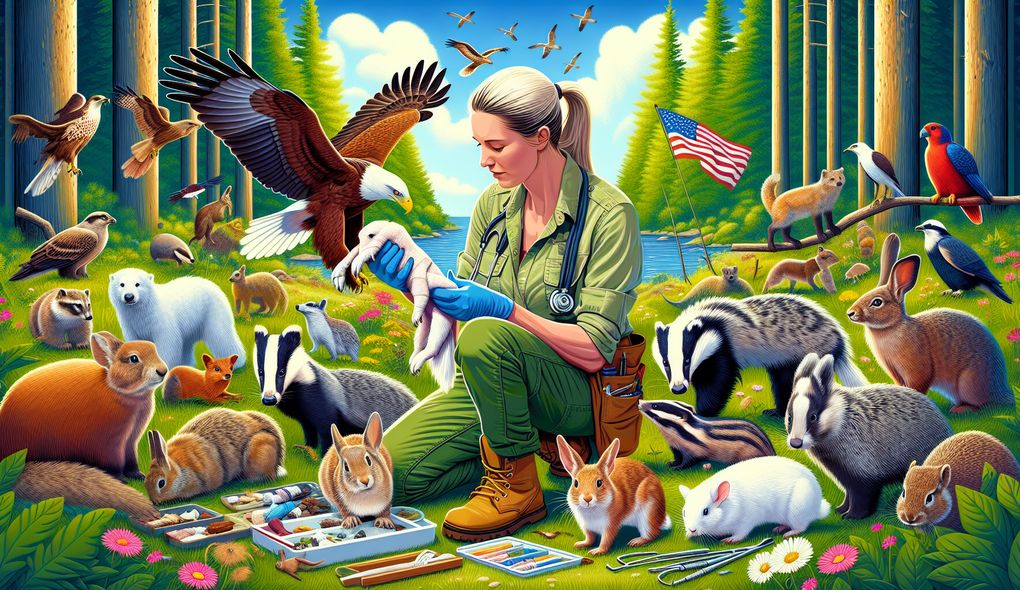What is your educational background and how does it relate to wildlife rehabilitation?
SENIOR LEVEL

Sample answer to the question:
I have a bachelor's degree in Biology, with a focus on Wildlife Conservation and Management. During my studies, I learned about animal physiology, behavior, and ecology, which provided a solid foundation for understanding wildlife rehabilitation. Additionally, I completed internships at local wildlife rehabilitation centers where I gained hands-on experience in assessing and treating injured animals. These experiences have prepared me to apply my knowledge and skills to the role of a Wildlife Rehabilitation Specialist.
Here is a more solid answer:
I hold a bachelor's degree in Wildlife Biology, with a specialization in Animal Rehabilitation. Throughout my degree program, I gained in-depth knowledge of animal physiology, behavior, and conservation strategies, all of which are essential for wildlife rehabilitation. In addition to my coursework, I completed an internship at a wildlife rehabilitation center, where I was directly involved in assessing and treating various injured animals, such as birds, mammals, and reptiles. This hands-on experience allowed me to develop strong diagnostic and decision-making skills, as well as an understanding of the ethical considerations involved in wildlife care. My educational background, combined with practical experience, makes me well-equipped to contribute to the field of wildlife rehabilitation as a Wildlife Rehabilitation Specialist.
Why is this a more solid answer?
The solid answer provides more specific details about the candidate's educational background, highlighting their specialization in Animal Rehabilitation. It also mentions a relevant internship experience, emphasizing their practical skills and understanding of ethical considerations. Overall, this answer demonstrates a strong alignment between the candidate's education and the job requirements. However, it could further enhance the answer by mentioning any advanced degrees or certifications related to wildlife rehabilitation and elaborating on the candidate's experience managing rehabilitation programs for different wildlife species.
An example of a exceptional answer:
I hold a bachelor's degree in Wildlife Biology, with a specialization in Animal Rehabilitation, and I also pursued a master's degree in Wildlife Conservation and Management. This advanced degree provided me with a deeper understanding of wildlife ecology, conservation strategies, and research methodologies. During my academic journey, I had the opportunity to work on several research projects focused on wildlife rehabilitation, where I collaborated with veterinarians and other wildlife specialists to develop innovative rehabilitation programs for various wildlife species. I also gained hands-on experience by volunteering at multiple wildlife rehabilitation centers, where I successfully managed the care and rehabilitation of injured animals, administered medical treatments, and oversaw the release process. My educational background, combined with my extensive practical experience, enables me to approach wildlife rehabilitation from a comprehensive and research-based perspective, making me a valuable asset as a Wildlife Rehabilitation Specialist.
Why is this an exceptional answer?
The exceptional answer goes above and beyond by not only showcasing the candidate's bachelor's degree in Animal Rehabilitation but also highlighting their pursuit of a master's degree in Wildlife Conservation and Management. This demonstrates their commitment to continuous learning and a deeper understanding of wildlife ecology and research methodologies. The answer also emphasizes the candidate's research experience and collaboration with other experts in the field, showcasing their ability to develop innovative rehabilitation programs. Furthermore, the answer mentions the candidate's extensive hands-on experience, illustrating their ability to effectively manage the care and rehabilitation of injured animals. This exceptional answer covers all the evaluation areas thoroughly and provides evidence of the candidate's qualifications and expertise in wildlife rehabilitation.
How to prepare for this question:
- Highlight your educational background related to wildlife rehabilitation, including any relevant degrees, specializations, or certifications.
- Describe any hands-on experience you have in assessing, treating, and rehabilitating injured wildlife.
- Discuss any research projects or collaborations you have been involved in that relate to wildlife rehabilitation.
- Share examples of how you have demonstrated strong diagnostic, decision-making, and leadership skills in your previous roles or experiences.
- Explain your approach to ethical considerations in wildlife care and rehabilitation.
What are interviewers evaluating with this question?
- Education
- Relevance to job
- Experience

